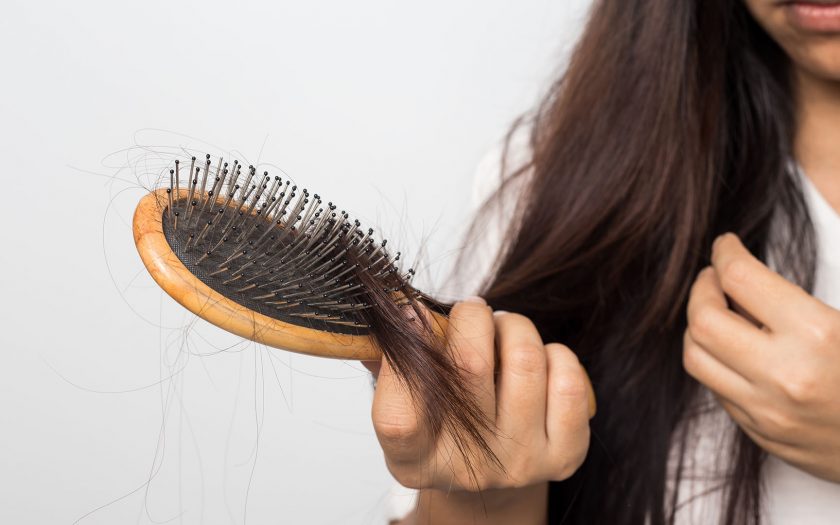An alarming suggestion that COVID-19 may cause hair loss has surfaced in some media. For example, the Huffington Post wrote about it with reference to a survey of 1,500 people. In those who recovered from COVID-19, hair loss was found to be one of the 25 most common symptoms of postcovid syndrome in humans.
According to trichologists, such hair loss after a viral disease is called telogenic or diffuse alopecia. Simply put, it is a temporary hair loss that can occur due to a certain stress that your body has experienced.
There are also other possible causes of this type of alopecia:
- emotional stress;
- diseases and their treatment – for example, cancer;
- anorexia;
- infections, etc.;
- postpartum period;
- long-term use of antidepressants;
- long-term use of antiglaucoma drugs;
- long-term use of hormonal drugs, such as birth control pills;
- long-term use of drugs against tachycardia, beta-blockers, etc.
Diffuse hair loss often makes money in beauty salons, which offer expensive injections or ampoules that allegedly contain superactive drugs. However, most often this type of hair loss disappears by itself, or you can speed up hair restoration yourself with drugs such as Tugain Solution and Tugain Gel. You can buy them on our website in the Hair category.
Why does hair fall out a lot after COVID-19?
According to trichologists, diffuse alopecia can be observed after COVID-19, and after chickenpox, and after the flu, and after other viral and bacterial diseases. Most hair loss begins 2-3 months after illness, stress or, for example, childbirth.
Such hair loss after illness can be explained by the fact that during illness, stress or the birth of a child, all the resources the body spends on providing the child with the necessary substances, recovery after illness or fight it. And full hair growth is simply not a priority.
First, hair prematurely completes its growth phase. After that comes the resting phase: the hair shaft separates from the follicle (stops growing), but does not fall out. It will fall out later, when in 2.5-3 months from the rested follicle new hair will start to grow.
Hair loss can be very noticeable – up to 30% of hair can leave us and affect it is almost impossible. However, you can influence the new hair that is just beginning to grow, namely to take care of a healthy diet, careful care and so on.
If hair loss does not decrease, you should consult a trichologist or your family doctor. There is a risk that such hair loss can become chronic. And this type of alopecia is much harder to get rid of.

